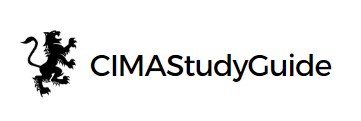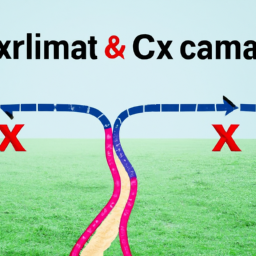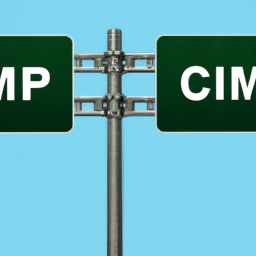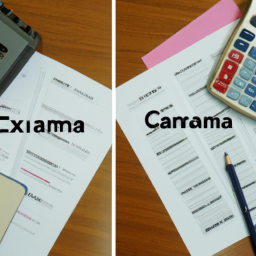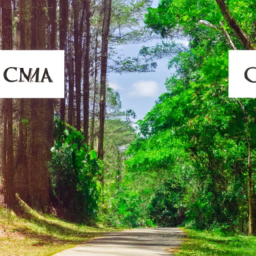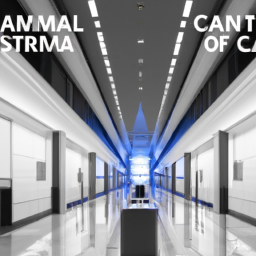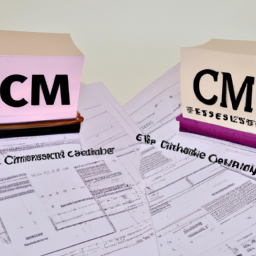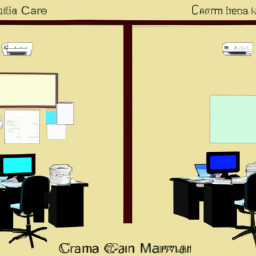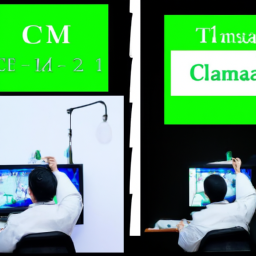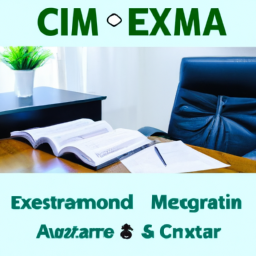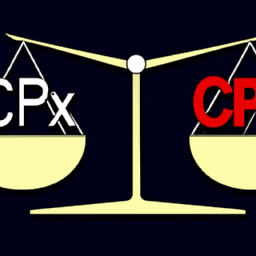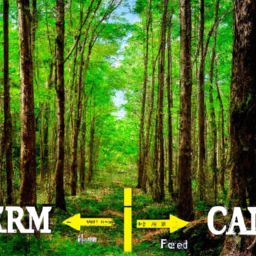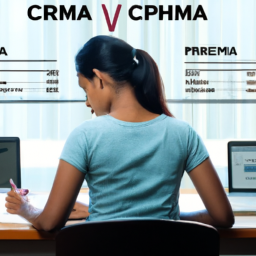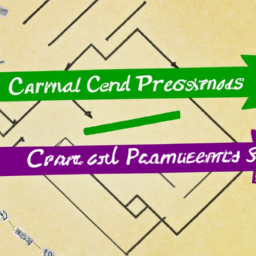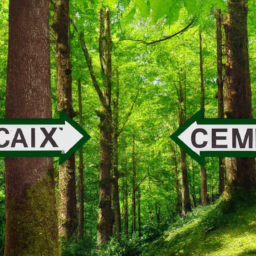Are you a finance or accounting professional looking to enhance your career prospects? If so, you may be considering taking a certification exam to demonstrate your expertise in the field. Two popular options are the CIMA (Chartered Institute of Management Accountants) Exam and the CTPH (Certified Treasury Professional and Hedge Fund) Exam.
To help you make an informed decision, this article provides a comprehensive analysis of these two exams, highlighting their similarities and differences. By comparing the content, format, and requirements of each exam, you will gain a clear understanding of which certification aligns better with your career goals.
To illustrate the significance of this decision, let’s consider a hypothetical scenario. Imagine you are a finance professional working in a multinational corporation, responsible for managing the company’s financial operations. You aspire to advance into a senior leadership role, where your expertise in management accounting and treasury management would be highly valued. In this case, it becomes crucial to determine whether the CIMA Exam or the CTPH Exam would better equip you with the necessary knowledge and skills to excel in this role.
With this example in mind, let’s delve into the analysis of the CIMA Exam and the CTPH Exam, enabling you to make a well-informed decision that propels your career forward.
Key Takeaways
- CIMA Certification offers a range of benefits for finance and accounting professionals.
- The CIMA exam structure and format, as well as the eligibility requirements, should be considered before pursuing the certification.
- The CIMA Certification provides career opportunities for professionals in the finance and accounting field.
- It is important to compare and evaluate the CIMA and CTPH exams to choose the right certification based on career goals, skills, and interests.
Overview of the Finance and Accounting Certification Landscape
In this discussion, we’ll explore the benefits of the CIMA Certification and the exam structure and format, as well as the eligibility requirements.
By obtaining the CIMA Certification, you can enhance your career prospects and gain recognition as a finance and accounting professional.
The exam consists of four levels, covering various topics such as financial accounting, management accounting, and business strategy.
To be eligible for the certification, you must have a relevant degree or qualification and meet the work experience requirements set by CIMA.
Benefits of the CIMA Certification
One major advantage of the CIMA certification is the numerous career opportunities it opens up for professionals. By obtaining this certification, you gain professional recognition and enhance your credibility in the finance and accounting industry. Employers value the expertise and skills that come with the CIMA certification, making you a desirable candidate for various job roles.
Whether you aspire to work in management accounting, financial analysis, or strategic planning, the CIMA certification equips you with the necessary knowledge and competencies to excel in these fields. Additionally, the global recognition of CIMA enhances your chances of working internationally, opening doors to opportunities in different countries and industries.
With the CIMA certification, you can truly expand your career horizons and explore a wide range of exciting roles.
Now let’s delve into the exam structure and format.
Exam Structure and Format
Imagine yourself sitting in a quiet, well-lit room, ready to tackle the challenging and invigorating exam structure and format of the CIMA certification.
The exam content is carefully curated to test your knowledge and skills in various areas such as management accounting, financial accounting, and business economics. The questions are designed to assess your ability to apply theoretical concepts to real-world scenarios, enabling you to demonstrate your practical understanding.
The scoring criteria for the CIMA exam are based on a comprehensive evaluation of your performance. Each question carries a specific weightage, and your answers are assessed based on accuracy, depth of analysis, and logical reasoning. This ensures that candidates who excel in both theoretical knowledge and practical application are rewarded accordingly.
Now that you have a glimpse of the exam structure and scoring criteria, let’s delve into the eligibility requirements for the CIMA certification.
Eligibility Requirements
Are you eligible to pursue the CIMA certification? To be eligible for the CIMA certification, you must meet certain requirements. First, you need a minimum of a high school diploma or equivalent qualification.
Additionally, you must pass the CIMA Certificate in Business Accounting, which consists of four exams covering the fundamentals of accounting, business economics, management, and ethics. Once you have completed the certificate, you can progress to the professional level exams. These exams cover more advanced topics such as strategic management, risk management, and financial strategy.
The CIMA certification opens up a wide range of career opportunities in management accounting and finance. It equips you with the necessary skills and knowledge to excel in these areas.
Now, let’s move on to the comparison of the CIMA and CTPH exams.
Comparison of the CIMA and CTPH Exams
The CIMA and CTPH exams can be compared in terms of their level of difficulty and the specific skills they assess.
The CIMA exam covers a wide range of topics, including financial reporting, management accounting, and strategic management. It requires a deep understanding of accounting principles and the ability to analyze financial data.
On the other hand, the CTPH exam focuses more on technical skills related to treasury and cash management. It assesses knowledge in areas such as cash flow forecasting, risk management, and working capital management.
In terms of difficulty, both exams require a strong foundation in accounting and finance, but the CIMA exam may be more challenging due to its broader scope of content.
When choosing the right certification for you, consider your strengths and interests in these areas.
Choosing the Right Certification for You
When choosing the right certification for you, it’s important to assess your career goals and objectives. Consider your skills and experience to determine which certification will best align with your professional aspirations.
Additionally, evaluating the value and return on investment of each certification will help you make an informed decision that will benefit your career in the long run.
Assessing Your Career Goals and Objectives
Pursuing your career goals and objectives can bring immense fulfillment and joy. When considering your career advancement and job satisfaction, it’s important to assess your goals and objectives carefully.
To visualize your career goals, imagine yourself in a position that aligns with your aspirations. Picture the challenges you would face, the skills you would utilize, and the impact you would make. Envision the satisfaction you would feel in achieving your goals and the sense of fulfillment it would bring.
Now, think about the career objectives you have set for yourself. Consider the steps you need to take to reach those objectives and the resources you will need to succeed. Visualize the skills and experiences you already possess and those you still need to acquire.
By evaluating your career goals and objectives, you can make informed decisions about the certification that will best support your aspirations.
Next, let’s consider your skills and experience in more detail.
Considering Your Skills and Experience
Now that you’ve assessed your career goals and objectives, it’s time to consider your skills and experience. This step is crucial in determining whether you’re ready to take on the CIMA or CTPH exam.
Begin by conducting a thorough skills assessment to identify your strengths and weaknesses. Evaluate your experience in relevant areas such as financial management, risk analysis, and strategic decision-making. Consider how your skills and experience align with the exam requirements and the demands of the industry.
This self-reflection will help you gauge your readiness and identify areas for improvement. Once you’ve completed this evaluation, you can move on to the next section, which focuses on evaluating the value and return on investment of pursuing either the CIMA or CTPH certification.
Evaluating the Value and Return on Investment
To truly assess the value and return on investment of either the CIMA exam or the CTPH exam, you must consider how they can unlock new doors of opportunity and set you on a path towards financial success.
One way to evaluate the value of these certifications is through cost analysis. Consider the cost of the exams themselves, as well as any study materials or courses you may need to invest in. Additionally, think about the potential increase in salary or job prospects that these certifications can bring.
Another evaluation method is to research the demand for professionals with these certifications in the industry you’re interested in. Look for job postings and talk to professionals already working in the field to get a sense of how valuable these certifications are in the job market.
By considering these factors, you can make an informed decision about which certification will provide the most value and return on investment for your career goals.
Frequently Asked Questions
What are the eligibility criteria to sit for the CIMA and CTPH exams?
To be eligible for both the CIMA and CTPH exams, you need to meet certain criteria.
For the CIMA exam, you must have a relevant degree or qualification, or have completed the CIMA Certificate in Business Accounting.
The CTPH exam requires a minimum of two years of professional experience in the field.
When comparing the exam formats, the CIMA exam is computer-based, while the CTPH exam is paper-based.
In terms of cost, the CIMA exam is generally more expensive than the CTPH exam.
Are there any prerequisites or prior knowledge required for these exams?
To successfully tackle these exams, you need to lay a solid foundation. Think of prerequisites as the building blocks and prior knowledge as the scaffolding that supports your understanding.
Both exams require a strong grasp of fundamental concepts in their respective fields. Without this groundwork, navigating the complex terrain of CIMA or CTPH exams can be like trying to climb a mountain without proper gear.
So, make sure you’re well-equipped with the necessary prerequisites and prior knowledge before embarking on these exams.
How long does it take to prepare for the CIMA and CTPH exams?
To prepare for the CIMA and CTPH exams, the exam preparation time can vary, depending on your prior knowledge and experience. The difficulty level of the exams can also impact the time needed for preparation. It is recommended to allocate sufficient time for studying and practicing, typically several months.
Comparing the difficulty, the CIMA exam is known for its comprehensive coverage of management accounting topics, while the CTPH exam focuses more on technical aspects of pharmacy practice.
Are there any differences in the career opportunities or job prospects after obtaining the CIMA and CTPH certifications?
When comparing the career opportunities and job prospects after obtaining the CIMA and CTPH certifications, it’s important to note the differences in salary potential and exam difficulty.
One interesting statistic is that professionals with the CIMA certification earn an average salary of $92,000, while those with the CTPH certification earn an average salary of $82,000.
Additionally, the CIMA exam is known for its higher difficulty level compared to the CTPH exam, which may impact career advancement opportunities.
Are there any ongoing professional development requirements or maintenance fees associated with holding the CIMA and CTPH certifications?
To maintain both CIMA and CTPH certifications, you must fulfill continuing education requirements and go through a certification renewal process. These requirements ensure that you stay up-to-date with the latest knowledge and skills in your field.
Continuing education can include attending workshops, seminars, or completing online courses. The certification renewal process typically involves submitting proof of continuing education and paying maintenance fees.
By meeting these requirements, you demonstrate your commitment to ongoing professional development and enhance your credibility in the industry.
Conclusion
In conclusion, after a comprehensive analysis of the CIMA and CTPH exams, it’s evident that both certifications offer valuable opportunities for finance and accounting professionals.
The CIMA exam focuses on management accounting and strategic financial management, while the CTPH exam emphasizes treasury and cash management.
Ultimately, the right certification for you depends on your specific career goals and areas of interest. So, whether you aspire to be a strategic financial leader or a treasury expert, choosing the right certification will be a crucial step in advancing your career.
